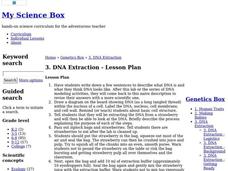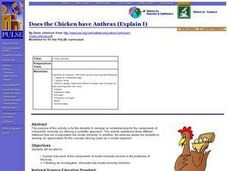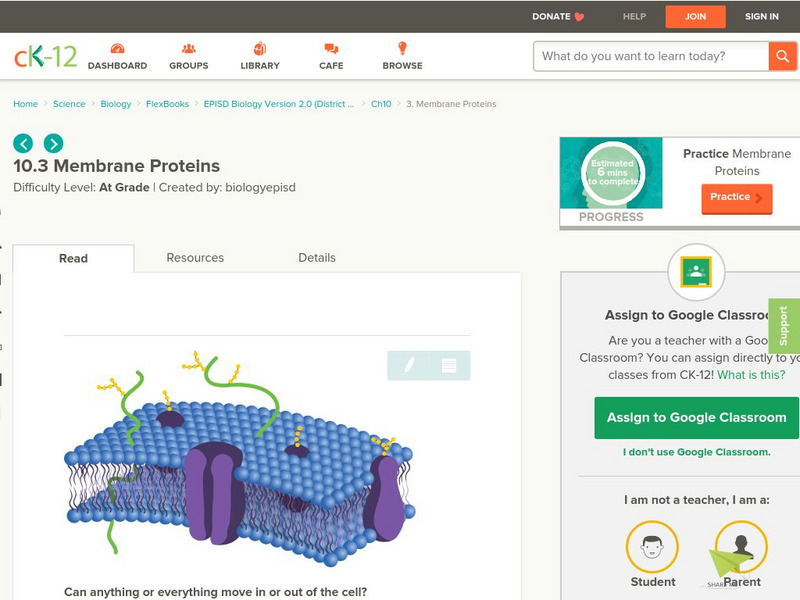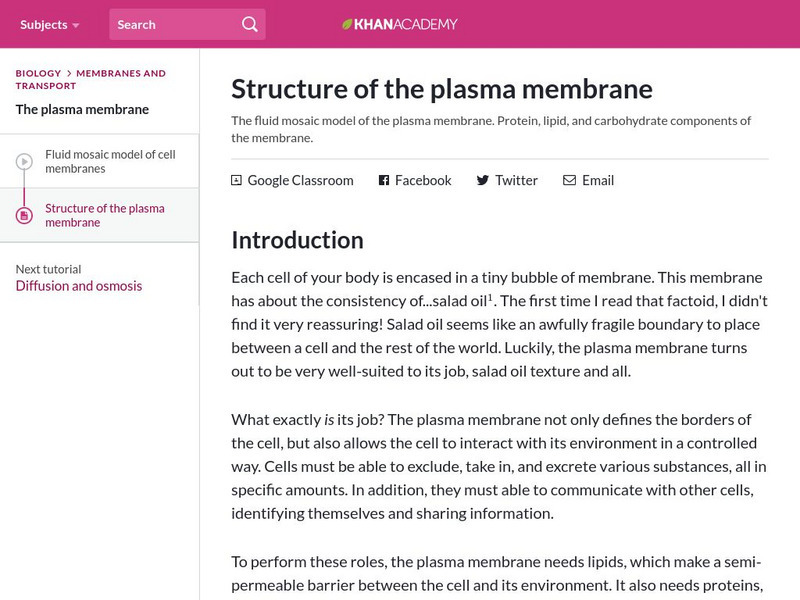Curated OER
DNA Extraction
Students extract the DNA from a strawberry. In this DNA technology lesson, students describe what they think DNA looks like. They use a procedure to isolate and extract the DNA from a strawberry.
Curated OER
Discovering the Structure of the Atom
Students investigate atomic and nuclear structure of matter by researching historical atomic theories. Students examine Rutherford's studies and discover that many scientific conclusions change over time as new data is collected.
Curated OER
Describe the Perfect Pathogen
Students develop a pathogen based upon their knowledge of pathogens and after presenting it to the class, they then suggest ways that the pathogen might be combated. Next they identify possible physical or behavioral changes in a...
Curated OER
Does the Chicken have Anthrax (Explain I)
Young scholars explain how each of the components of innate immunity function in the protection of the body. Following an investigation, they articulate how innate immunity functions.
Curated OER
Shop projects Summer Smile Program
Students explore the list of products available to make and choose at least 2. In this project lesson students pick and choose their own projects to create in a shop class.
Curated OER
Is There Really Life on Mars?
Students examine the work of scientists and determine how they test their theories.
TeachEngineering
Teach Engineering: Cell Membrane Color Sheet and Build a Cell Membrane
Students color-code a schematic of a cell and its cell membrane structures. Then they complete the "Build-a-Membrane" activity found at http://learn.genetics.utah.edu. This reinforces their understanding of the structure and function of...
Ohio State University
Ohio State University: Cell Membranes
Diagrams and animations help you understand the basics of cell membrane structure and function.
University of Hamburg
University of Hamburg: Membranes: Diffusion, Permeability, Osmosis, Turgor, Active and Passive Transport and Transport
This cellular biology page presents extensive detail on the chemical nature of the cell membrane. Using the Chime plug-in, students can manipulate and study models of the membrane.
BiologyWise
Biology Wise: Peripheral and Integral Membrane Proteins
Discusses the structure of a cell membrane, the role of membrane proteins, and the differences between integral membrane proteins and peripheral membrane proteins as regards to their functions, location, and relationship with the...
TeachEngineering
Teach Engineering: Active and Passive Transport: Red Rover Send Particles Over
Students compare and contrast passive and active transport by playing a game to model this phenomenon. Movement through cell membranes is also modeled, as well as the structure and movement typical of the fluid mosaic model of the cell...
Vision Learning
Visionlearning: Cell Biology: Introduction to Biological Membranes
Explanation of complex and dynamic cell structures that are selective in regards to what is allowed to enter and exit cells.
Concord Consortium
Concord Consortium: Stem Resources: Diffusion, Osmosis, and Active Transport
Have you ever wondered how important gases enter and leave cells? Take an up close tour of a pore in a cell membrane. Then explore diffusion, osmosis, and active transport through this collection of interactive models.
Enchanted Learning
Enchanted Learning: Plant Cell: Animal Cell Anatomy
This is a thorough site which contains a glossary of plant/animal cell anatomy terms. Diagrams of both cells are included along with worksheets to label.
CK-12 Foundation
Ck 12: Biology: Membrane Proteins
[Free Registration/Login may be required to access all resource tools.] Describes proteins in the plasma membrane.
CK-12 Foundation
Ck 12: Membrane Proteins
[Free Registration/Login may be required to access all resource tools.] Activity explores proteins in the plasma membrane describing their structure and function. The Fluid Mosaic Model is also summarized.
ibiblio
Ibiblio: Virtual Cell Web Page
A teacher- and student-contributed website of 3-D models and explanations of cell structures.
BiologyWise
Biology Wise: Fluid Mosaic Model
The fluid mosaic model provides an explanation of the structure of biological membranes. It explains why a membrane can perform all of its functions, e.g., permeability and adhesion. This resource describes the main components of a cell...
Khan Academy
Khan Academy: Structure of the Plasma Membrane
Article takes a look at the different components (protein, lipid, cholesterol, and carbohydrate) of the plasma membrane, examining their roles, their diversity, and how they work together to make a secure boundary around the cell.
National Health Museum
Access Excellence: Modeling Limits to Cell Size
Why can't cells continue to grow larger and larger to become giant cells, like a blob? Why are most cells microscopic in size? Find out answers to these questions through this "hands-on" activity that simulates the changing relationship...
Alabama Learning Exchange
Alex: Rubber Egg Diffusion
This lab will illustrate diffusion and osmosis through a semi-permeable membrane. A chicken egg will be used as the model cell, because the yolk is actually a single large cell. The surrounding egg white, or albumin, contains water and...
















